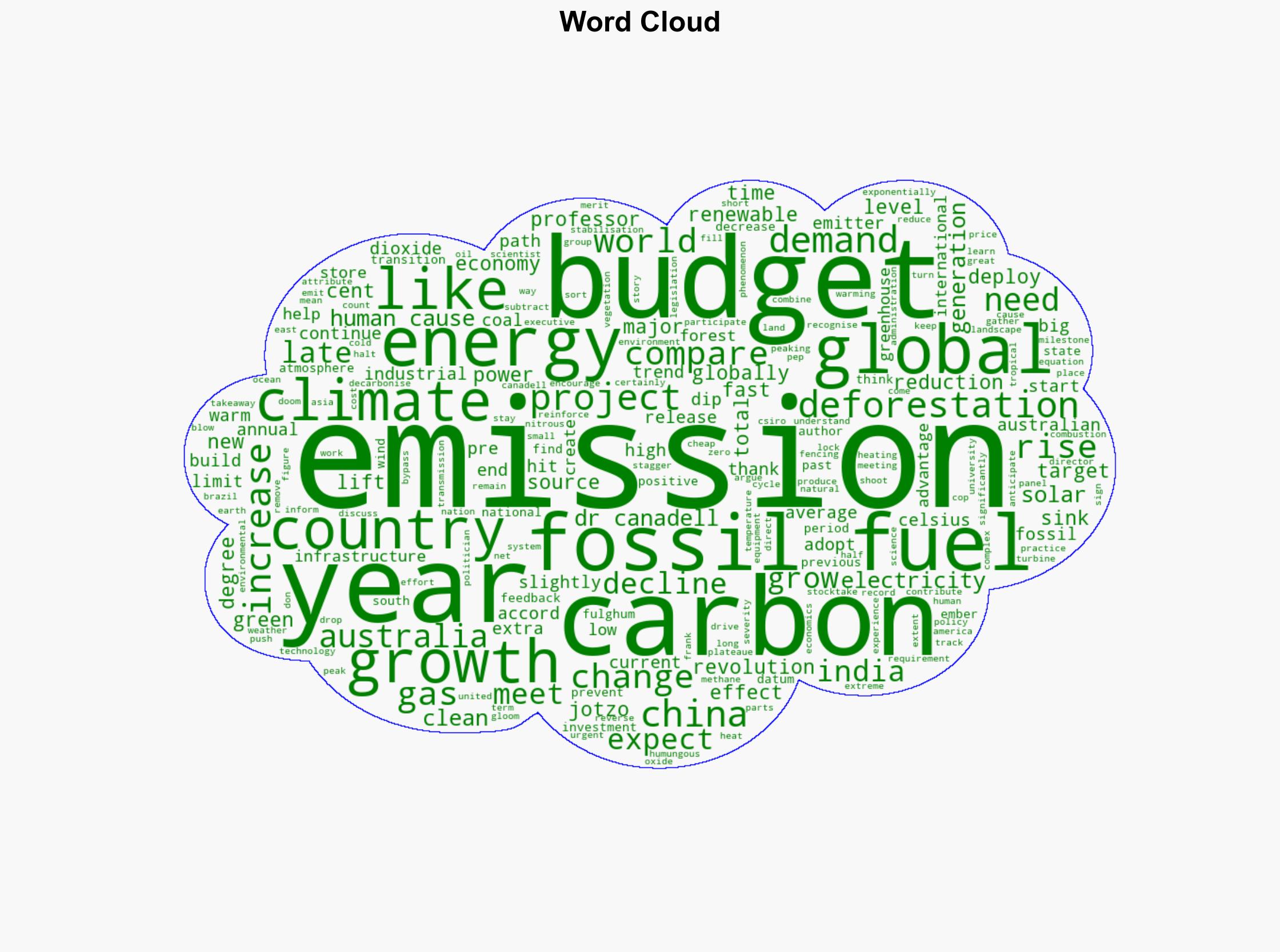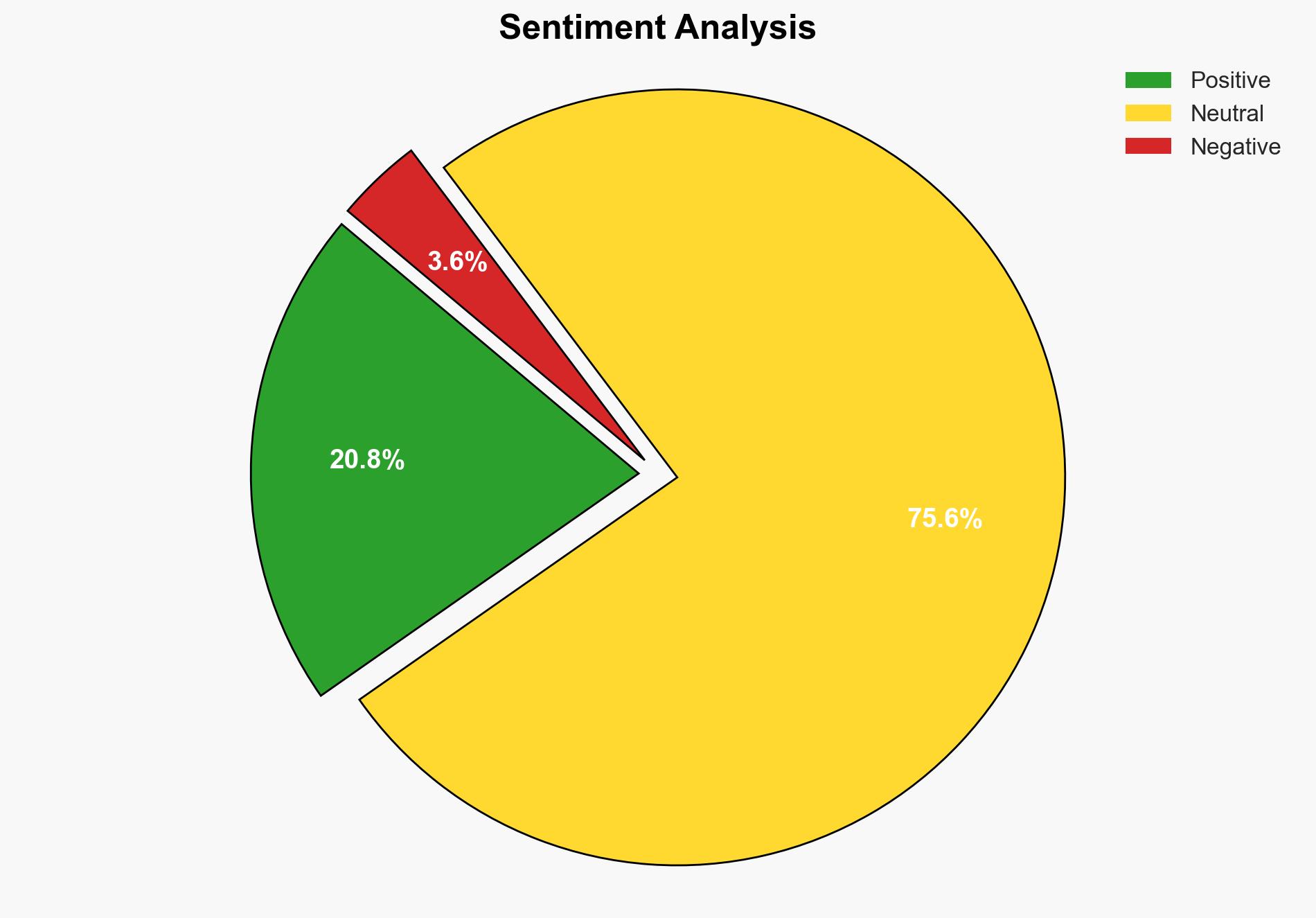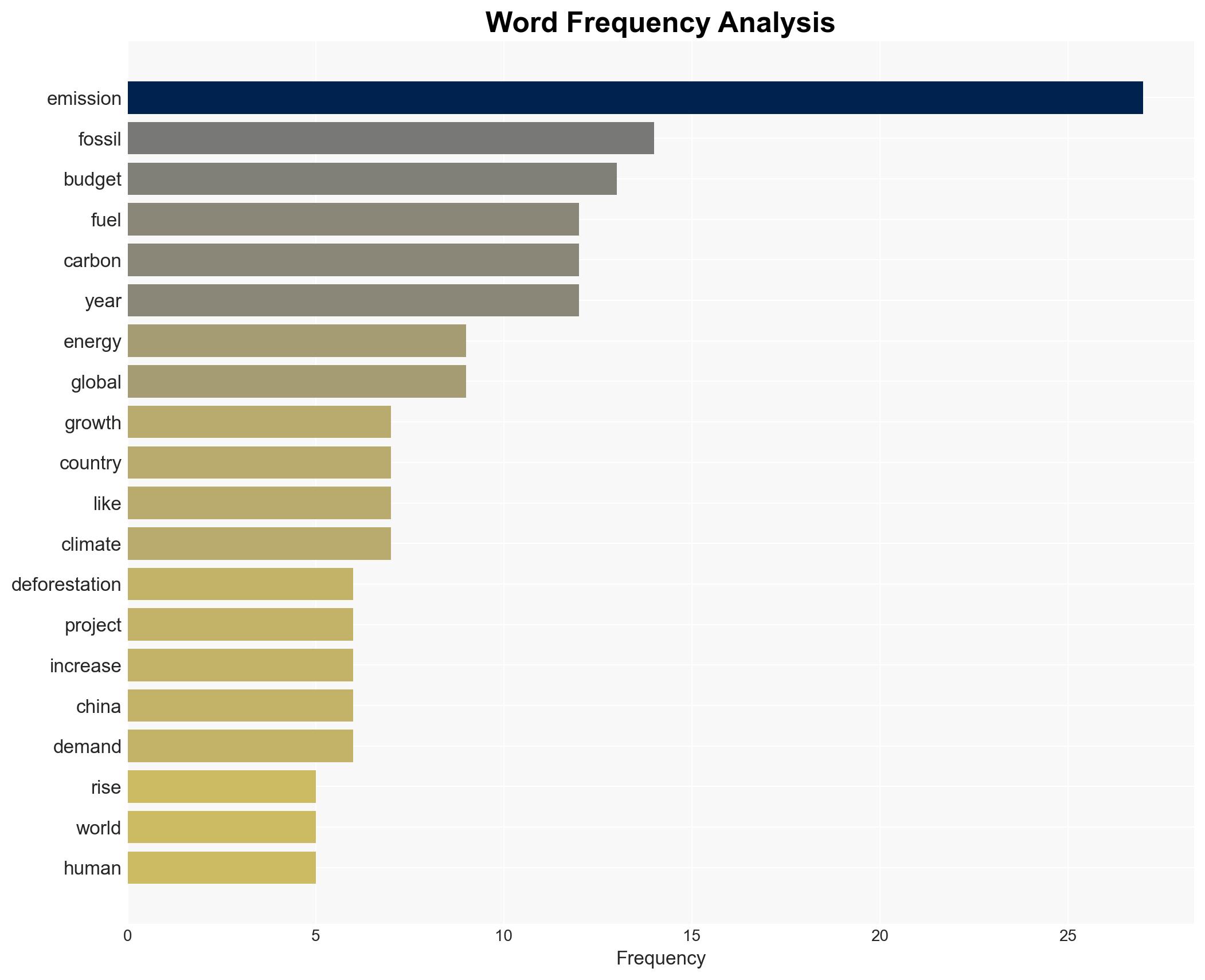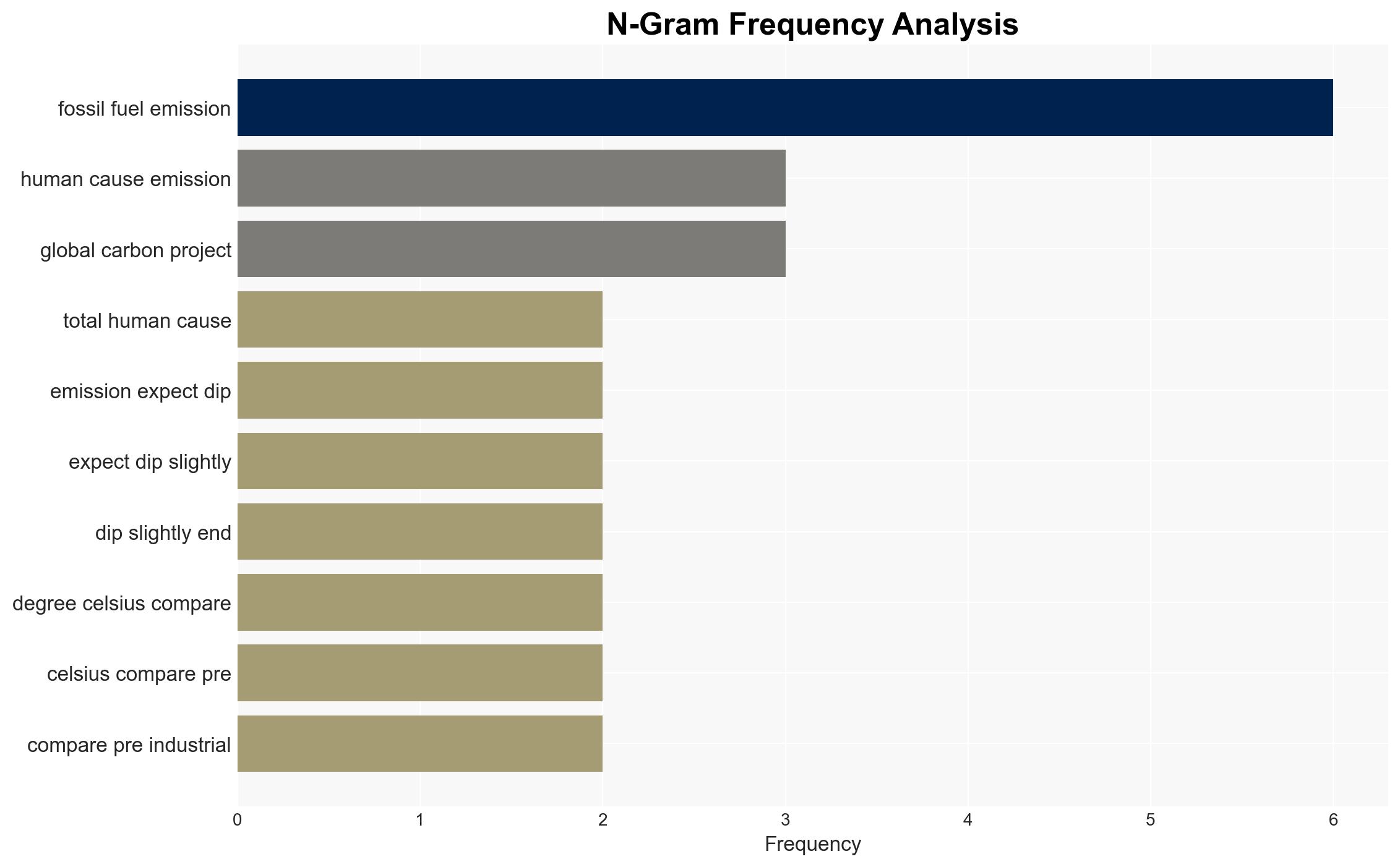Carbon emissions from fossil fuels tipped to hit record high in 2025 – ABC News (AU)
Published on: 2025-11-13
AI-powered OSINT brief from verified open sources. Automated NLP signal extraction with human verification. See our Methodology and Why WorldWideWatchers.
Intelligence Report: Carbon emissions from fossil fuels tipped to hit record high in 2025 – ABC News (AU)
1. BLUF (Bottom Line Up Front)
The strategic judgment is that global fossil fuel emissions are likely to reach unprecedented levels by 2025, driven by continued reliance on coal, oil, and gas despite growth in renewable energy. This scenario presents significant challenges to global climate targets. The most supported hypothesis is that without substantial policy shifts and technological advancements, emissions will continue to rise, exacerbating climate change impacts. Confidence level: High. Recommended action includes accelerating renewable energy adoption and implementing stricter emissions regulations globally.
2. Competing Hypotheses
Hypothesis 1: Global fossil fuel emissions will continue to rise, reaching record highs by 2025 due to ongoing economic growth and energy demands, particularly in developing nations.
Hypothesis 2: Despite current trends, global fossil fuel emissions will stabilize or decline by 2025 as major emitters implement aggressive renewable energy policies and technological innovations.
Hypothesis 1 is more likely given the current trajectory of fossil fuel consumption and insufficient global policy measures to curb emissions. Hypothesis 2, while optimistic, lacks substantial evidence of imminent large-scale policy shifts or technological breakthroughs necessary to reverse the trend.
3. Key Assumptions and Red Flags
Assumptions: Economic growth will continue to drive energy demand; current renewable energy growth rates will not suffice to offset fossil fuel consumption.
Red Flags: Over-reliance on unproven carbon capture technologies; political and economic resistance to aggressive emissions reductions; potential underreporting of emissions data by major emitters.
4. Implications and Strategic Risks
The continued rise in fossil fuel emissions poses significant risks, including exacerbating climate change effects, increasing frequency and severity of extreme weather events, and straining global resources. Politically, failure to meet climate targets could lead to international tensions and economic sanctions. Economically, countries heavily reliant on fossil fuels may face market instability as global demand shifts towards renewables.
5. Recommendations and Outlook
- Accelerate investment in renewable energy infrastructure and technology development.
- Implement stricter emissions regulations and enforce compliance through international agreements.
- Encourage cross-border collaborations to share technology and best practices in emissions reduction.
- Best Case: Global emissions stabilize by 2025 due to rapid policy changes and technological advancements.
- Worst Case: Emissions continue to rise unchecked, leading to severe climate impacts and geopolitical instability.
- Most Likely: Emissions rise to record levels by 2025, with partial mitigation through increased renewable energy adoption.
6. Key Individuals and Entities
Pep Canadell – Executive Director, Global Carbon Project
Frank Jotzo – Professor, Australian National University
7. Thematic Tags
Global Climate Policy, Renewable Energy, Fossil Fuels, Emissions Regulation, International Cooperation
Structured Analytic Techniques Applied
- Causal Layered Analysis (CLA): Analyze events across surface happenings, systems, worldviews, and myths.
- Cross-Impact Simulation: Model ripple effects across neighboring states, conflicts, or economic dependencies.
- Scenario Generation: Explore divergent futures under varying assumptions to identify plausible paths.
Explore more:
Regional Focus Briefs ·
Daily Summary ·
Methodology





